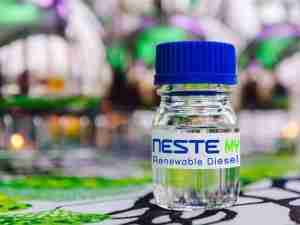Full Colonial Pipeline gives rise to U.S. market for shipping capacity
By: Reuters | Feb 06 2015 at 06:00 AM | International Trade
The perpetually full Colonial Pipeline has spawned another market for traders and brokers: line space on the crucial artery.
The 5,500-mile (8,851 km) pipeline system moves more than 3 million barrels per day of gasoline and distillates from the U.S. Gulf Coast to the Northeast.
Nearly two years ago Colonial announced it was considering expansions to possibly add up to 600,000 barrels a day of capacity and perhaps a new parallel pipeline from Texas to Georgia. Those projects remain in the planning stage, Colonial spokesman Steve Baker said.
So traders and brokers turned the system’s space into a commodity that is traded in a secondary market through brokers, by phone and instant messages. The approximately 18-month-old market is opaque with little in the way of data on liquidity.
To move product on Colonial, shippers submit nominations, or requests for space they want. If nominations exceed capacity, Colonial allocates the space. Allocations are routine for the pipeline, which has been full for about three years.
Regular Colonial shippers may not need all their allotted space as customer needs fluctuate. However, shippers want to preserve that space for high-demand times - summer for gasoline, winter for distillates.
Colonial also charges a penalty if shippers don’t use all their allotted space, several U.S. Gulf Coast brokers and traders said.
So they move full shipments and sell space for barrels they don’t need. The line space buyer pays for that unneeded space - in pennies per barrel shipped - and gets fuel for customers along the way or at the other end.
The same trade occurs, though not as much, for space on Kinder Morgan Inc’s Plantation pipeline, which moves products to Maryland from Louisiana, and the Explorer Pipeline, which moves products and condensate from Texas to the Midwest.
Colonial line space has traded for 14 cents a gallon or higher when demand is strong. In low demand times shippers have sold space at a loss to protect their allocation, traders said.
A Gulf trader said some companies seek an allotment on the line just to sell space.
“Regular shippers see that as very unfair,” he said.
Another Gulf trader noted that line space is not a liquid market as available space is finite. He called it a “true wet-barrel market,” meaning it involves physical delivery of fuels not just paper contracts. “It’s one of the last real markets left,” he said.










